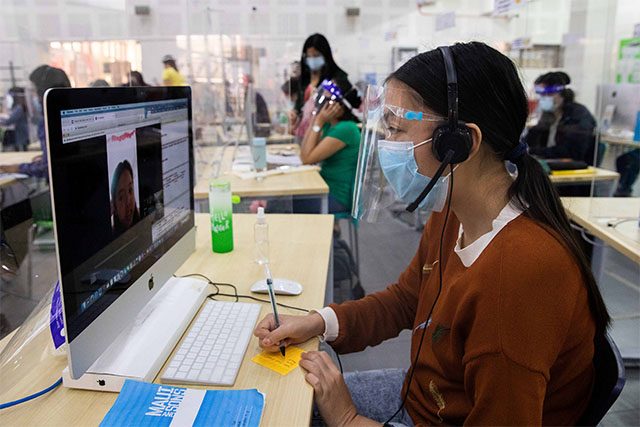
Posting pictures and names of students without their consent violate privacy laws, according to the National Privacy Commission.
The NPC referenced the popular meme of Karen Davila and Lyca Gairanod in the reminder it issued about digital privacy amid online learning.
The meme came from an interview where Davila was surprised to find out that she shared the same birthday with Gairanod.
READ: Karen Davila, Lyca Gairanod interview turns into hilarious memes
In the commission’s version, Davila represents the teacher who posted a screenshot of their online class. Gairanod, meanwhile, represents the student who did not give his or her consent to this posting.
“‘Yung di ka na-inform na ipo-post pala sa fb (upside down smiling emoji). Sa ilalim ng Data Privacy Act, personal information ang pangalan at piktyur ng students o data subjects. Ang mga ito ay protektado ng batas, lalo na kung may kasama pang ibang info na maaaring sensitibo,” NPC said.
“Ang processing ng personal data for online classes ay pang-online learning at teaching lamang. Never for a teacher’s personal use!” it added.
The NPC also stressed the importance of “consent” among students and teachers in making recordings or copies of classes.
“Keyword is CONSENT. Bago magsimulang mag-record o mag-take ng screenshots from your online class, kailangang ipaalam at humingi ng pahintulot mula sa students o sa kanilang parent/legal guardian kung sila ay minors pa lamang,” it said.
Under the Data Privacy Act of 2012, the term data subject refers to “an individual whose personal information is processed.”
Personal information, meanwhile, covers “any information whether recorded in a material form or not, from which the identity of an individual is apparent or can be reasonably and directly ascertained by the entity holding the information, or when put together with other information would directly and certainly identify an individual.”
In Sections 12 and 13 of the law, data subjects have to provide their consent first before their personal information is processed.
Unauthorized processing can be penalized by imprisonment from one to six years and a fine ranging from P500,000 to P4 million.
The NPC also urged schools to develop strict social media protocols for their teachers and staff.
“Paalala ng NPC sa mga schools, develop a strict SOCIAL MEDIA POLICY for your teachers and staff. This is to allow effective online teaching and learning na hindi bumabangga sa data privacy rights ng inyong students,” it said.
Students are also encouraged to speak up should they feel their online privacy had been violated, the commission said.
“Sa mga students naman, never be afraid to stand up for your data privacy! Karapatan ninyong maging safe at secure ang inyong information online,” it added.









